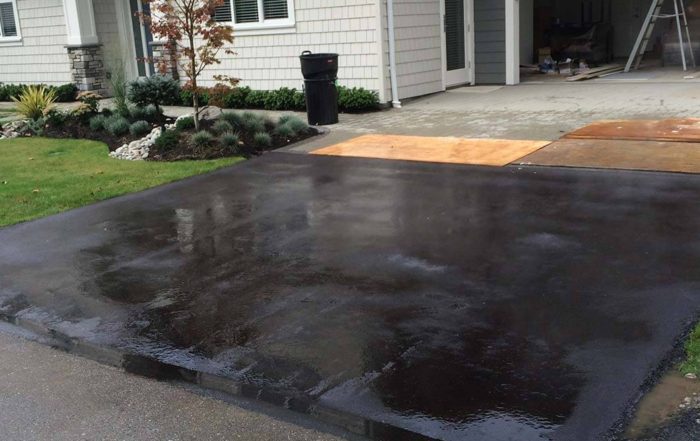Home Building Projects
How to Keep Yourself Protected
How to Keep Yourself Protected
Once you’re heart is set on a home building project and you’ve committed, how do you make sure you are safe and protected during the process?

Once you’re heart is set on a home building project and you’ve committed, how do you make sure you are safe and protected during the process?

Research informs us that homeowners can sometimes put themselves in scary situations by not taking the proper precautions when dealing with a contractor. We all have heard horror stories about people who either buy or build homes only to find major deficiencies down the road costing up to hundreds of thousands of dollars to fix. We believe ‘buyers beware’ isn’t enough – there are a number of things that should be kept in mind before taking on a home building endeavour, buying a home, or completing any project.
Communication is one of the simplest and most powerful ways of protecting your home building investment. It all starts with your vision, and properly portraying your ideas initially is the first step towards great results. Looking to get inspired? See our article on Home Improvement Inspiration, and once your ideas have taken shape, read Construction Contractor – What you need to know before you hire one to make sure you’re covered during your home building project or renovation. Equally important as communication is documenting it. If there is no record, it didn’t happen. Using this article, we suggest keeping an expectation list for your contractor to ensure both of you are clear on what you want, and a quality result.
HOME BUILDING AND RENOVATIONS – HOW TO ENSURE ACCOUNTABILITY
Keeping track of what has been agreed upon and holding your contractor accountable for your home building or renovation result is the best safety net you can have. Equally important as communication is documenting it. If there is no record, it didn’t happen. Although phone calls are quick, easy and clear, they don’t keep any record of what is being said. Here are some ways you can keep record of discussion outside of the contracts you initially signed.
- Using email or text message to communicate with your contractor. That way, everything being said is recorded and can be referenced later. Furthermore, you can discuss your project over the phone or in person as long as you ask for confirmation of any changes with a summarized email.
- Take regular pictures and organize them in accordance to date and task. By creating a Google Drive or Dropbox account, you’ll not only be able to store your own photos in it, but your contractor will also be able to add photo updates regularly for you to see.
- Update your contract! Any changes in agreement should be reflected in your contract, including changes in design, labor, budget and / or timeframe. Using the emails, text messages or photos you have collected, discuss the changes with your contractor and have the contract updated, reprinted, and re-signed.
- Ask for Permit Inspection slips at each stage. Your contractor should notify you of each inspection date ahead of time, and during each one they will receive a pass or fail slip. Although they should be notifying you of the results regardless, having your own copy of the slips for reference is always recommended.
- Record progress and absenteeism. This way, you can narrow down the reasons why the schedule isn’t being kept. If the home building or renovation work is not being done simply because your contractor has been taking days off or has other reasons he or she can’t disclose, you will have record of the claims as avoidable and should be compensated.

REMAIN IN THE DRIVER’S SEAT
THIS IS YOUR PROJECT, AND YOU’RE IN CONTROL.
Remember who hired who. If your contractor isn’t comfortable with any of the suggestions on the following list, we suggest finding a more collaborative one. There are many contractors willing to be accountable for their work and live up to the standard they portray. Here are some final things you should implement to your project.
- Hire your own inspector. This will not cost an arm and a leg and is invaluable especially when buying spec homes or a custom build. Going to an outside source to spot deficiencies will save you a ton of money if they are to find any.
- Use your own lawyer. Builders often have “free” lawyers but you must ask yourself; why are they including this service? Chances are, they are protecting their employer and not you.
- Have regular meetings. We can’t stress enough how important scheduling regular meetings is to review your contractor’s progress. Using the the messages you’ve sent back and forth and the photos you’ve collected along the way, meet face to face to compare the progress to the schedule outlined in your contract.

MORE FROM THE PRO+ CORNER.
Why Business Choose Valroc For Snow Removal Services
When people in the Lower Mainland think of the [...]
Asphalt Driveway Maintenance Solutions 4 Top Tips
Asphalt Driveway Maintenance Solutions - 4 Top Tips [...]
Decorative Concrete Driveway Ideas – Styles | information | Pictures
Decorative Concrete Driveway Ideas - Browse designs, info, and images [...]
Why Business Choose Valroc For Snow Removal Services
When people in the Lower Mainland think of the winter season of 2016-17, they might remember how much snow came down. They might also remember how difficult [...]
Asphalt Driveway Maintenance Solutions 4 Top Tips
Asphalt Driveway Maintenance Solutions - 4 Top Tips This week - after your asphalt driveway has been installed, it is important to implement the [...]
Decorative Concrete Driveway Ideas – Styles | information | Pictures
Decorative Concrete Driveway Ideas - Browse designs, info, and images This week - we look into the most popular decorative concrete design ideas [...]






